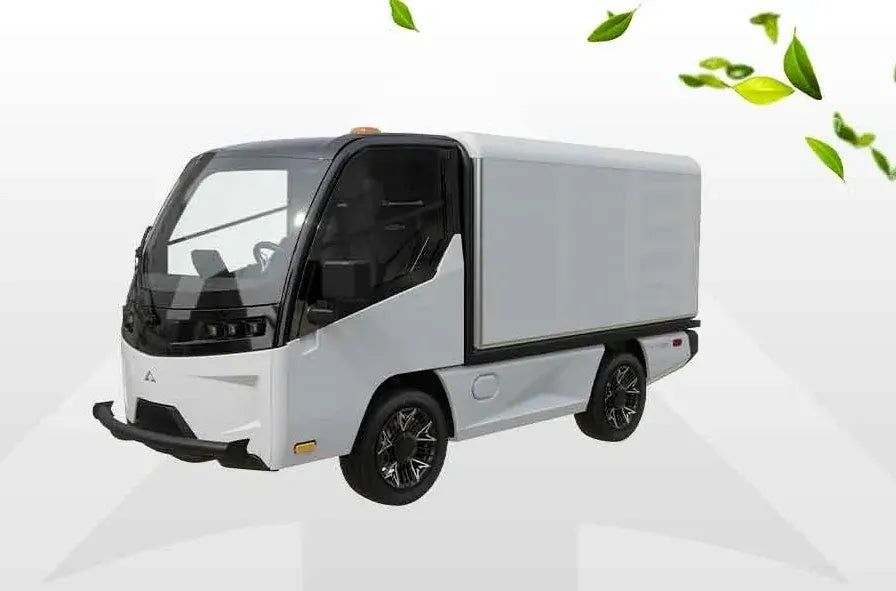Introduction: What is a Japanese mini truck and why convert it to an EV?
Japanese mini trucks, also known as Kei trucks, are small and compact vehicles that are widely used in various industries such as agriculture, construction, and transportation. These trucks are known for their durability, fuel efficiency, and versatility. However, with the growing concern for the environment and the need for sustainable transportation solutions, converting a Japanese mini truck to an electric vehicle (EV) has become a popular option. By converting these trucks to EVs, owners can reduce their carbon footprint and contribute to a greener future. Additionally, converting a Japanese mini truck to an EV can also result in cost savings, as electric vehicles are known for their lower operating and maintenance costs. In this blog, we will explore the process of converting a Japanese mini truck to an EV, including the benefits, challenges, and important considerations to keep in mind.
Advantages of converting a Japanese mini truck to an EV
Converting a Japanese mini truck to an electric vehicle (EV) offers numerous advantages. Firstly, it significantly reduces environmental impact by eliminating emissions and reducing dependence on fossil fuels. Additionally, converting to an EV can lead to substantial cost savings in the long run, as electricity is generally cheaper than gasoline. Furthermore, EVs require less maintenance compared to traditional vehicles, as they have fewer moving parts and do not require oil changes. Converting a Japanese mini truck to an EV is not only a sustainable choice but also a practical one, offering both environmental and financial benefits.
Understanding the basics of electric vehicle conversion
Understanding the basics of electric vehicle conversion is essential when converting a Japanese mini truck to an EV. While it may seem like a daunting task, having a solid understanding of the key components and processes involved can make the conversion process much smoother. From removing the internal combustion engine to installing an electric motor and battery pack, each step requires careful planning and expertise. Additionally, knowledge of the necessary electrical systems and safety precautions is crucial to ensure a successful and safe conversion. By understanding the fundamentals of electric vehicle conversion, you can confidently embark on the journey of transforming your Japanese mini truck into an eco-friendly and efficient electric vehicle.
Assessing the feasibility of converting a Japanese mini truck to an EV
Assessing the feasibility of converting a Japanese mini truck to an EV is a crucial step for anyone considering this conversion. While it may seem like a challenging task, with the right knowledge and expertise, it is definitely achievable. Before starting the conversion process, it is important to assess the condition and compatibility of the mini truck's components, such as the engine, transmission, and suspension. Additionally, factors like battery capacity, charging infrastructure, and range requirements should be carefully evaluated. By thoroughly assessing these aspects, you can determine the feasibility of the conversion and ensure a successful transition to an electric vehicle.
Choosing the right components for the conversion
Choosing the right components for converting a Japanese mini truck into an electric vehicle (EV) is a critical step in ensuring a successful and efficient conversion. Each component, from the motor and battery pack to the controller and charger, must be carefully selected to match the specific requirements of the vehicle. Factors such as power output, voltage, and compatibility with the existing drivetrain should be taken into consideration. Additionally, considering the weight and size of the components is crucial for maintaining the balance and handling of the mini truck. By understanding the unique needs of the vehicle and conducting thorough research, one can make informed decisions and ultimately achieve a reliable and high-performing electric conversion.
Step-by-step guide to converting a Japanese mini truck to an EV
Converting a Japanese mini truck to an electric vehicle (EV) is an exciting project that combines innovation and sustainability. In this step-by-step guide, I will walk you through the process of transforming your mini truck into an eco-friendly mode of transportation. From removing the internal combustion engine to installing an electric motor and battery pack, each stage requires careful planning and execution. Throughout this blog, I will share insider tips and expert advice to ensure a successful conversion. By the end, you will have the knowledge and confidence to embark on your own EV conversion journey, reducing emissions and embracing a greener future.
Safety considerations during the conversion process
When converting a Japanese mini truck to an electric vehicle (EV), safety should always be a top priority. It is crucial to consider various safety aspects during the conversion process to ensure a reliable and secure end result. One important consideration is the battery system, as it needs to be properly installed and protected to prevent any potential hazards. Additionally, attention should be given to the electrical wiring and connections to avoid any short circuits or electrical failures. Furthermore, it is essential to assess the vehicle's structural integrity and make any necessary modifications to accommodate the additional weight of the electric components. By addressing these safety considerations, you can confidently convert your Japanese mini truck to an EV while ensuring the wellbeing of both yourself and others on the road.
Testing and troubleshooting the converted EV
Testing and troubleshooting the converted EV is a critical step in ensuring its functionality and performance. After the conversion process, it is essential to thoroughly test the electrical system, including the battery pack, motor, and controller, to ensure they are properly connected and functioning as intended. Troubleshooting any issues that arise during testing is crucial for identifying and resolving potential problems, such as faulty wiring or malfunctioning components. With the expertise and knowledge of an experienced converter, the testing and troubleshooting phase can help ensure a successful and reliable conversion, allowing you to enjoy the benefits of an eco-friendly and efficient Japanese mini truck EV.
Legal and regulatory requirements for operating an EV on the road
When converting a Japanese mini truck to an electric vehicle (EV), it is important to be aware of the legal and regulatory requirements for operating it on the road. While the process of converting a mini truck to EV can be exciting and environmentally friendly, it is essential to comply with the necessary regulations to ensure safety and legality. Depending on your location, you may need to obtain specific permits, certifications, and inspections to ensure that your converted mini truck meets all the necessary standards for roadworthiness. Additionally, you may also need to adhere to specific regulations regarding emissions, vehicle weight limits, and licensing requirements. By understanding and fulfilling these legal and regulatory requirements, you can confidently and legally enjoy the benefits of your converted Japanese mini truck EV on the road.
Conclusion: The benefits of converting a Japanese mini truck to an EV
Converting a Japanese mini truck to an electric vehicle (EV) offers a multitude of benefits that make it a worthwhile endeavor. Firstly, by converting to an EV, you are making a significant contribution to reducing carbon emissions and promoting environmental sustainability. Japanese mini trucks are known for their fuel efficiency, and converting them to EVs takes this efficiency to a whole new level, as electric motors are far more energy-efficient than internal combustion engines. Additionally, converting to an EV eliminates the need for gasoline, which can result in substantial cost savings in the long run. Furthermore, EVs require less maintenance compared to traditional vehicles, as they have fewer moving parts and do not require oil changes or regular tune-ups. Overall, converting a Japanese mini truck to an EV not only benefits the environment but also offers financial savings and a hassle-free ownership experience.

